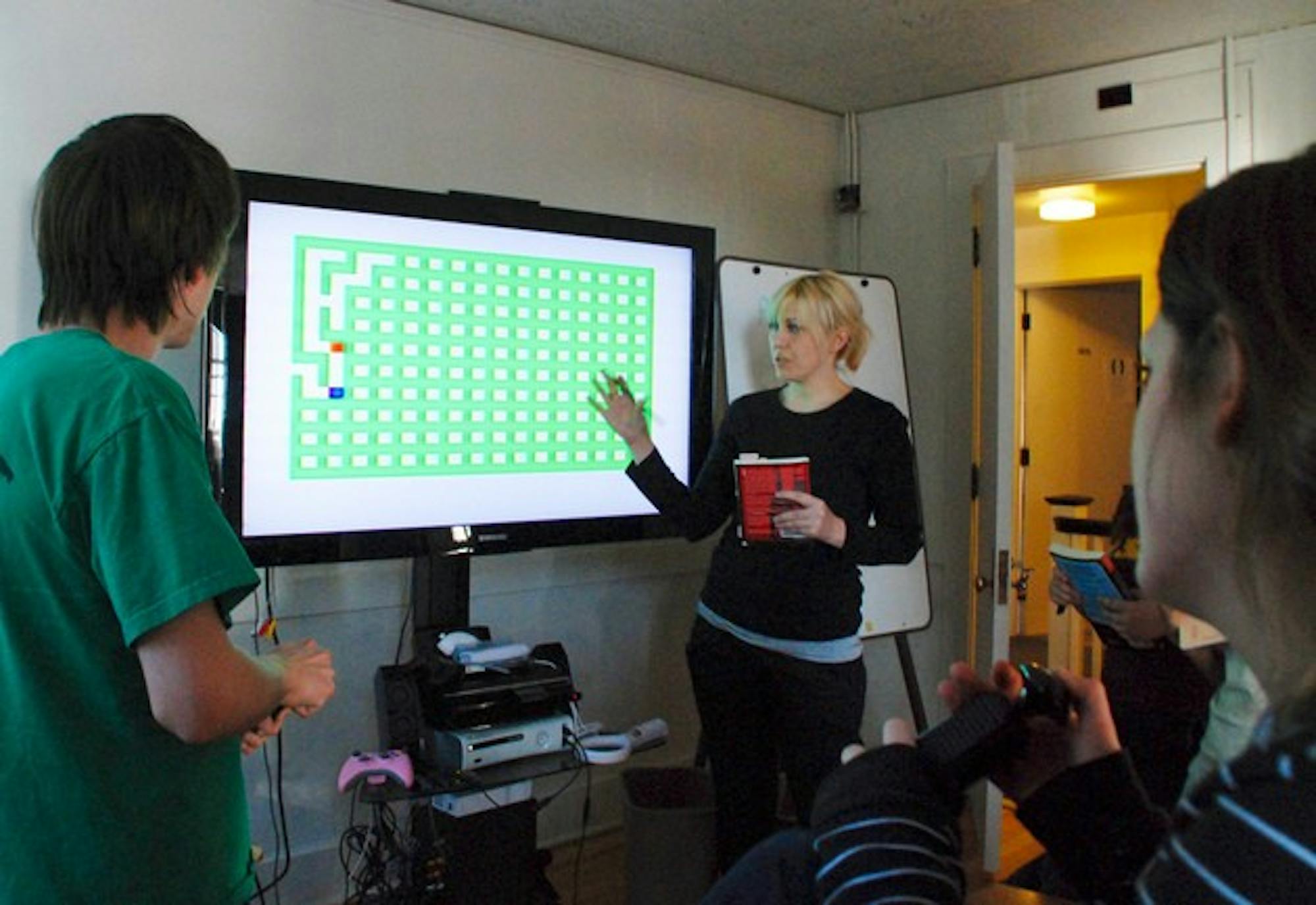The inaugural holder of the Sherman Fairchild Distinguished Professorship in Digital Humanities, Flanagan is focused on investigating emerging conceptions about "digital humanities" in order to better understand how computer applications can be used as more than just tools to achieve everyday ends.
Flanagan said she hopes that Dartmouth's nascent digital humanities program, which is slated to offer such courses as "Media Design Laboratory: Game Design Studio" and "Digital Music, Sonic Arts and the Internet" through the film department this spring and summer, will help her create "new forms of meaning and cognition" for technology, cyberculture, aesthetics and modernity.
Yet, precisely defining the term "digital humanities" has proven problematic.
"It depends on who you ask, because it's sitting in the middle of so many fields, because it's depending on a particular kind of approach or technology," Flanagan said in an interview with The Dartmouth.
One of Flanagan's close collaborators in developing Dartmouth's digital humanities program, English professor Aden Evens, has his own working definition of the recently popularized term.
"'Digital humanities' is using digital data to make art, playful objects and text, all sorts of things that shape our culture, who we are and our ways of interacting and communicating with each other," Evens said.
Social science, film studies and communication are all subjects housed under the digital umbrella, according to Evens, who has worked at numerous universities teaching music studies, philosophy, literature, writing and media studies.
Although neither Evens nor Flanagan is completely satisfied with "digital humanities" as an all-encompassing moniker, Evens said that if there were to be a department for the subject at Dartmouth, it would resemble "the English department mashed together with the computer science department put together with the studio arts department."
The movement to achieve the digital humanities program's ambitions, however, will have to be taken one byte at a time.
"So far, it's just a glimmer in the eye of professor Flanagan," Evens said. "She is so full of energy and ideas. She has very little patience for waiting around."
Flanagan's multimedia art work has been exhibited in various international venues, and she has even created "the first web-based adventure game for girls," as her eponymous web site puts it.
The free online game, "The Adventures of Josie True," is geared toward teaching math and science to girls ages nine to 11.
Flanagan's formidable interdisciplinary experience led her to found the Tiltfactor Laboratory while working as a professor of contemporary digital arts, culture and technology at Hunter College.
A think tank for the digital, Tiltfactor focuses on producing fun, non-profit and socially activist games that distort distinctions between art and science.
The lab, which was set up in the North Fairbanks building at the College four months ago, has attracted many Dartmouth students.
"I helped set up the lab and am currently working with both [Flanagan and [Evens] on several projects," Brendan Scully '10, one of Dartmouth's pending "digital humanities" majors, said. "I participate in it because it is the only place in the Ivy League where this kind of work is being done."
Two years ago, Scully transferred to Dartmouth from Trinity College, Dublin.
With Evens as his faculty adviser, Scully fashioned a special, but tentative major that "observes the relationship between our developing society and the ways in which [that society] represents itself," assembling a series of courses from the philosophy, English, history, and film and media studies departments.
Scully said that, for him, "digital humanities," is an examination of how art and philosophy have progressed together over time.
"People shouldn't wield digital technology without first understanding what it is doing," Scully said. "We consume media blindly, and something impossible to label is being lost in the chatter."
If everything goes according to plan, Dartmouth will be the first college to boast a game studies-related major, Flanagan said.
"We can't promise a major, but that is the goal," Flanagan said. "Given the time frame, it seems difficult to make something new, but the important thing is we have so many strengths on campus that are already here."




![HONEYJOON_[Ines Gowland]_4.PNG](https://snworksceo.imgix.net/drt/7af2efc8-1bd1-4001-b754-e2718ce663b8.sized-1000x1000.PNG?w=1500&ar=16%3A9&fit=crop&crop=faces&facepad=3&auto=format)